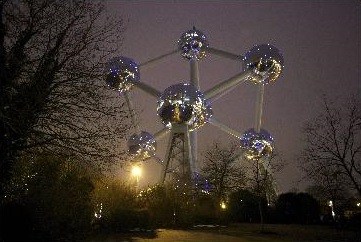The World Wildlife Fund (WWF) has called on businesses, citizens and cities worldwide to take part in Earth Hour, a global operation meant to draw attention to environmental degradation, by turning off their lights on Saturday night from 8:30 PM to 9:30 PM local time.
This year, the symbolic action focuses on the novel Coronavirus pandemic which, the WWF says, stems from “our destructive relationship with nature.”
"2020 was a catastrophic year, not only because of the COVID-19 pandemic, but also due to droughts, heat waves and other extreme climatic phenomena, leading to forest fires and floods,” said WWF-Belgium Spokesman Koen Stuyck.
“All this was not due to chance, but stemmed from our impact on biodiversity,” he added. “When we emerge from the pandemic emergency, we absolutely need to place nature and climate at the core of recovery measures, investments and our daily lives. In this way, we’ll not only limit the risk of future epidemics, we’ll also improve our lives and provide a future for our children.”
The WWF points to the global food-production system as one of the main causes of the destruction of nature. Intensive agriculture, in particular, endangers natural habitats and the animals that live there, according to the environmental protection organisation. It urged that priority be given to products resulting from sustainable agriculture, and called on people to eat vegetarian food.
The WWF will launch Earth Hour at 8.30 p.m on Saturday by airing a video on the link between the destruction of nature and the pandemic risk. It has urged viewers to share the short film on social media, using the hashtag #SpeakUpforNature.
The Earth Hour initiative, also called “An Hour for the Planet,” was launched in Australia in 2007.
Since then, it has spread to all corners of the globe. Emblematic monuments such as the Empire State Building in New York and the Eiffel Tower in France, the Acropolis in Athens, the Pyramids of Egypt and the Atomium in Brussels, have all joined the movement.
Each year, they turn off all lights for one hour at the same time on the last Saturday of March to raise awareness on global energy issues.
The Brussels Times

